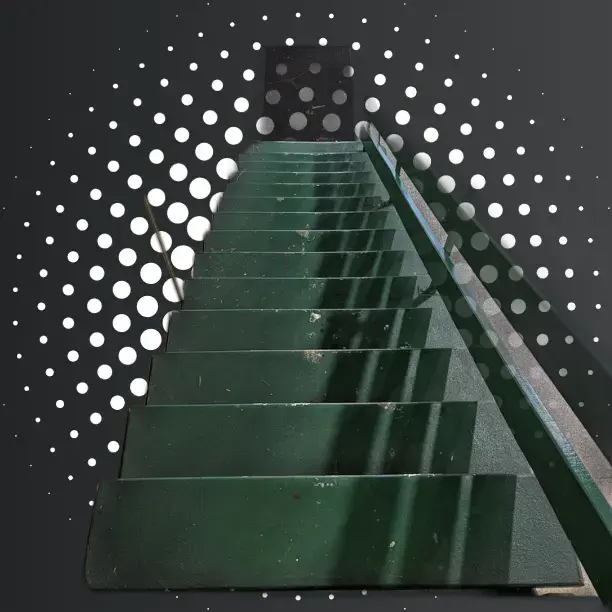Well this article is pretty disingenuous…
-
The distribution “managed by a single person” depends on hundreds of people working on different sofware to keep up. It’s not “one person doing better than the thousands of Microsoft employees combined” implication they are pushing
-
Windows 11 beat the linux distros by up to 20% in 1% lows which are argued as much more important by most tech reviewers. It wasn’t consistant at all which means that there was a giant margin of error.
I love linux and linux gaming has gotten radically better, but I am tired of tech “journalism” literally just cherrypicking, misleading, clickbait trash.
Not to mention the major hurdle for Linux gaming is anti cheat software being brought over. Too many games are 100% unplayable because the devs don’t allow their anticheat to be installed on Linux systems
This is because most anti cheats for windows are kernel level rootkits that have full access to your entire system, and gamers just trust that known to be ineffective, scammy and profiteering, anti cheat companies software companies would /never/ do anything nefarious.
How can you trust them?
You can’t! Black boxed code, babyyyyyy.
Anyway yeah on linux systems basically the designs of all common anti cheat systems would be laughed at as hilariously insecure code that no sane person would allow on their computer because you would have to give it root level access.
This is basically insane as in the linux paradigm, root level access is reserved only for a bare minimum of system processes, whereas on Windows, well with the new Pluton tech in the latest lines of major CPUs, Windows has the ability to DRM literally anything you install on it and just get rid of your ability to run or install it, as they see fit, with a network enabled sub layer of the CPU that you as a user cannot override from within Windows.
The only hurdle for linux gaming is for more gamers and game developers to realize the truth of what I just said.
Its possible to do anti cheat in less invasive ways. But that requires more work from game development studios, and is costly.
Anyone else remember when servers had like actual human admins that would respond to player complaints, and would work on the backend of a server to come up with their own ways to detect cheating server side?
As if the anti-cheat even worked.
Doesn’t matter if it’s a prerequisite
Client-side anti-cheat has always been a scam to offload server processing onto client machines.
This results in worse cheat detection and wastes client resources, but companies like EA can spend less on servers.
In the defence of client side AC; if the entire game runs on the server, then network delay makes FPS:es awful to play. Being able to trust clients and let them do hit detection is quite important in making online FPS:es responsive. In addition, cheats that remove walls/grass, highlight players or even autoaim are near impossible to detect server side. One could try to use heuristics and statistics but it would be difficult to tell the difference between cheaters and players who are just good at aiming and map awareness.
Anti cheat = rootkit. You should not install it at all.
-
https://www.youtube.com/watch?v=5eKSQT5mV-c
Important: Nobara is way less Secure than Fedora.
- no Secureboot
- monthly updates instead of often daily
- purposefully removed SELinux (because the Dev doesnt know how to use it)
- still no Fedora39!
If you want to game, stick to regular Fedora. A project that is actually secure is ublue with dedicated NVIDIA images that should just work and never break, and they even have Bazzite, an Image specifically for the Steamdeck but also for Desktop.
These images are only ½ day behind upstream, apply minimal additions and patches (like drivers, codecs, packages, udev rules for controllers) and Nick from the video above found out that the Nobara patches with their weird less supported Kernel arent really worth the hassle.
As a non-power user, I don’t want daily updates. Monthly is perfectly fine for me.
I 100% agree, its best to just stick to upstream Fedora imo. Glad you made this comment. The security issues of Nobara always put me off, especially since basically everything it does can just be applied to regular Fedora. I think Nobara would much better serve as a script or toolkit, similar to Brace, or something along those lines instead of an entire separate OS with the security issues it brings.
Secure Boot is an utter piece of bullshit from the depths of hell.
Proprietary UEFI BIOS is, but for a secure system with local manipulation prevention it can be needed. Also secureboot is a security measurement against malware so no, its simply the best we have.
Look at Coreboot if you want a secure modern system
- novacustom
- 3mdeb
- starlabs
- system76
Secure Boot is just Bootloader Signature Enforcement controlled by M$, it’s not gonna prevent Superfish 2.0 from happening.
Unfortunately, I don’t have a coreboot-able system. When I move out I’ll make that a priority.
I mean you saw LogoFAIL right?
I never bought my current machines. Funnily enough, they don’t show any logos on bootup, (Windows Boot Manager is smth else)
The vulnerability actually isn’t in Windows Boot Manager, it’s a flaw in the image-parsing code of the UEFI itself. That’s why it’s able to bypass SecureBoot.
It just happens that for whatever reason you can easily update the image file from within Windows/Linux itself. The fact they don’t show a logo currently does not mean you’re immune, as the system might just be showing a black screen at that point. Code can be injected into an image file without perceptibly affecting the image output, so you’d likely be able to use a “black screen” logo. If your computer has a UEFI instead of a BIOS, which is pretty much everything from the last 10yrs, then you are more than likely at risk.
My computer likely isn’t susceptible, and that’s because it’s a Dell workstation. While the bug still exists in the image parser, Dell has locked things down so it’s pretty much impossible to change the boot logo from userspace.
FWIW, some firmware allow changing it during the update procedure. I remember having to update my ThinkPad’s firmware and it had that option.
For whatever reason, Windows 11 is worse at Cyberpunk 2077 than Arch for me. Constant stuttering. It might be that Arch has much less going on than Windows, but it’s enough for me to use Linux as my main gaming OS now.
Well since it’s slower that just means it’s being more careful and not prone to making mistakes
Open your source and prove that or else we know you’re lying.
Cool what about games with anti-cheat
Cool what about malware? /s (no really anticheat is malware)
Anticheat isn’t malware. Malware has adverse effects on your system.
AC uses some techniques that some forms of malware also use (but far from all)
Malware defined as any software that does not benefit the user but wastes systems resources would fit here.
Anticheat benefits the users by…reducing the number of cheaters in games. Big concept to wrap your head around, I know.
There are several forms of anticheat. The ones that just run when the game is running, is usually fine. However, there is the Riot anti cheat which just runs all the time and isn’t uninstalled when Valorant is uninstalled. That is malware.













